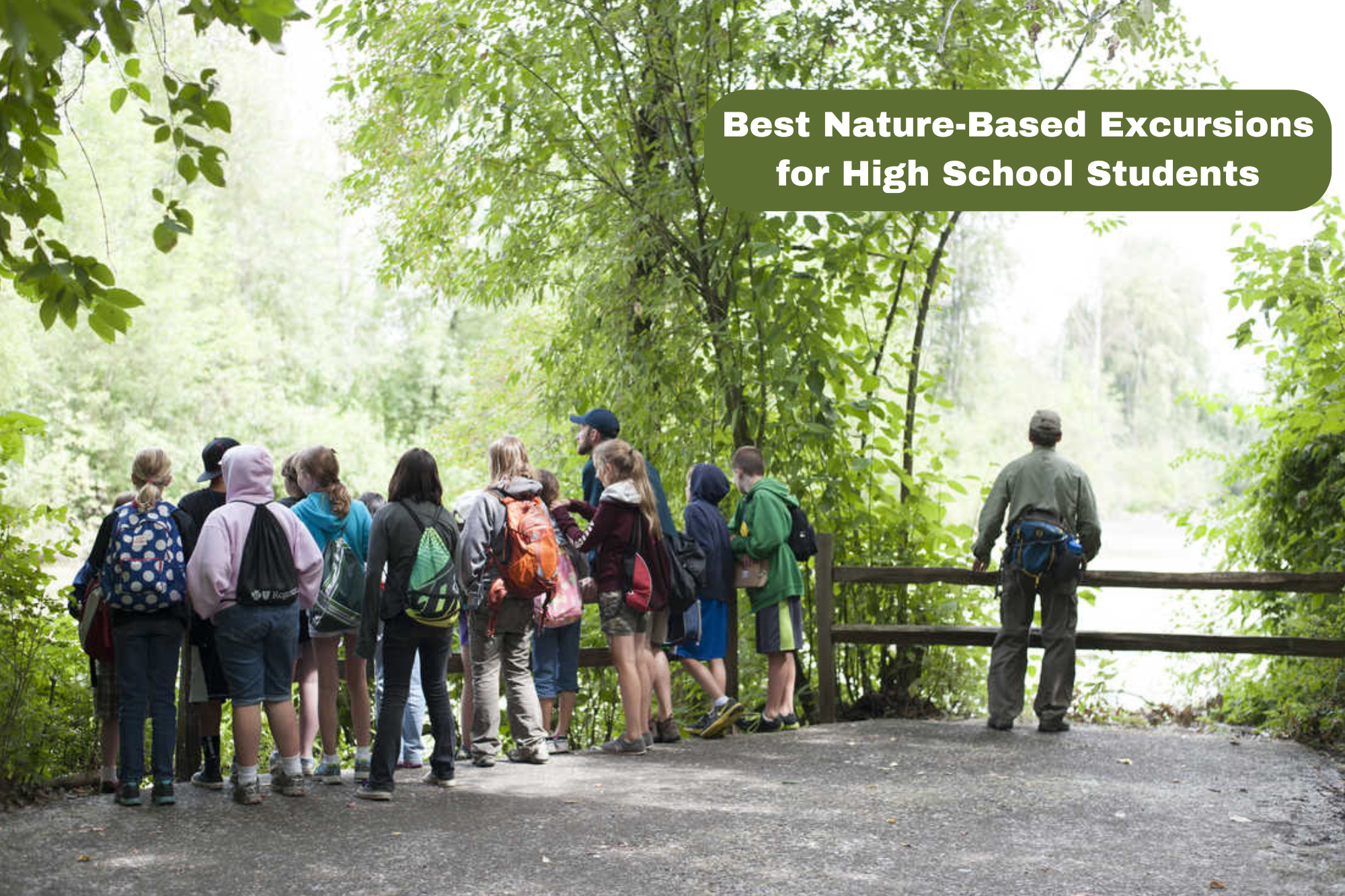Share this Post
Nature-based excursions provide high school students with a unique opportunity to step out of the classroom and immerse themselves in real-world learning experiences.
These trips not only enhance their understanding of environmental science, biology, and geography but also promote teamwork, critical thinking, and personal development.
This article explores the best nature-based excursions for high school students, highlighting locations, educational benefits, and activities that make these trips worthwhile.
1. National Park Exploration
National parks serve as excellent outdoor classrooms where students can witness biodiversity, geological formations, and conservation efforts firsthand.
Best National Parks for Student Excursions:
- Yellowstone National Park, USA – Geothermal features, wildlife observation, and ecosystem studies.
- Kruger National Park, South Africa – Safari tours to learn about conservation and African wildlife.
- Great Barrier Reef Marine Park, Australia – Coral reef ecology and marine biodiversity education.
- Serengeti National Park, Tanzania – Wildlife migration studies and sustainable tourism exploration.
- Banff National Park, Canada – Glaciers, ecosystems, and climate change impacts.
Educational Benefits:
- Enhances understanding of ecosystems and conservation.
- Offers hands-on learning experiences in geology and biology.
- Encourages environmental stewardship and sustainability awareness.
2. Botanical Gardens and Arboretums
Botanical gardens are valuable for studying plant biodiversity, conservation efforts, and sustainable agriculture.
Top Botanical Gardens for Student Visits:
- Kew Gardens, UK – Houses the world’s largest collection of living plants.
- New York Botanical Garden, USA – Offers interactive exhibits on plant science.
- Singapore Botanic Gardens, Singapore – Focuses on tropical plant species and conservation.
- Royal Botanic Gardens, Melbourne, Australia – Explores native Australian flora.
Educational Benefits:
- Hands-on experience in botany and plant conservation.
- Awareness of medicinal and economic importance of plants.
- Encourages sustainable agricultural practices.
3. Coastal and Marine Excursions
Studying marine ecosystems allows students to understand oceanography, marine biology, and conservation challenges.
Best Marine Excursions for Students:
- Monterey Bay Aquarium, USA – Marine conservation and ocean science programs.
- Galápagos Islands, Ecuador – Endemic species study and Charles Darwin’s evolution theory.
- Mediterranean Coast, Spain – Marine biodiversity and coastal erosion studies.
- Great Barrier Reef, Australia – Coral reef restoration projects.
Educational Benefits:
- Exposure to marine conservation initiatives.
- Understanding of the impact of climate change on ocean ecosystems.
- Hands-on learning with marine species and habitats.
4. Mountain and Forest Exploration
Mountains and forests offer students opportunities to learn about biodiversity, climate change, and natural resource management.
Ideal Mountain and Forest Locations:
- Amazon Rainforest, Brazil – Biodiversity hotspot and indigenous conservation practices.
- Himalayan Region, Nepal/India – Glacial studies and mountain ecology.
- Black Forest, Germany – Conservation programs and eco-tourism lessons.
- Rocky Mountains, USA/Canada – Wildlife conservation and geological formations.
Educational Benefits:
- Enhances understanding of ecosystems and climate adaptations.
- Provides hands-on conservation and sustainability education.
- Encourages outdoor survival skills and leadership development.
5. Wetlands and River Studies
Wetland ecosystems are vital for water purification, flood control, and biodiversity conservation.
Notable Wetland Destinations for Study Trips:
- Everglades National Park, USA – Mangrove forests and water conservation.
- Sundarbans, India/Bangladesh – Largest mangrove forest and Bengal tiger habitat.
- Okavango Delta, Botswana – Wetland biodiversity and hydrology.
- Danube Delta, Romania – Bird migration studies and ecosystem services.
Educational Benefits:
- Increases knowledge of hydrology and ecosystem functions.
- Raises awareness about wetland conservation and climate impact.
- Provides fieldwork opportunities in ecological research.
6. Desert Ecology Trips
Desert excursions help students understand adaptations, geology, and human impact on arid environments.
Best Desert Destinations:
- Sahara Desert, Africa – Sand dunes, Bedouin culture, and extreme climate studies.
- Sonoran Desert, USA/Mexico – Unique flora and fauna adaptations.
- Atacama Desert, Chile – One of the driest places on Earth with scientific research stations.
- Dubai Desert Conservation Reserve, UAE – Sustainable tourism and conservation projects.
Educational Benefits:
- Insight into survival adaptations of desert flora and fauna.
- Understanding of desertification and climate change effects.
- Learning about human impact and conservation strategies.
7. Agricultural and Eco-Tourism Excursions
Sustainable farming and eco-tourism provide practical learning experiences on food production and conservation.
Top Agricultural & Eco-Tourism Destinations:
- Dole Plantation, Hawaii, USA – Sustainable agriculture and pineapple farming.
- Tuscany, Italy – Organic vineyards and farm-to-table practices.
- Costa Rican Eco-Lodges – Rainforest conservation and sustainable tourism.
- Japanese Rice Farms – Traditional farming techniques and food sustainability.
Educational Benefits:
- Learning about sustainable agriculture and food systems.
- Encouraging responsible tourism and conservation ethics.
- Practical experience in organic farming and eco-tourism business models.
Conclusion
Nature-based excursions offer high school students a transformative learning experience, combining education with adventure.
These trips enhance students’ understanding of science, ecology, and conservation while fostering a deeper appreciation for the natural world.
Whether exploring national parks, studying marine ecosystems, or engaging in agricultural sustainability, these excursions provide valuable life lessons and skills.
By incorporating nature-based excursions into school curriculums, educators can inspire students to become responsible global citizens with a passion for the environment.





